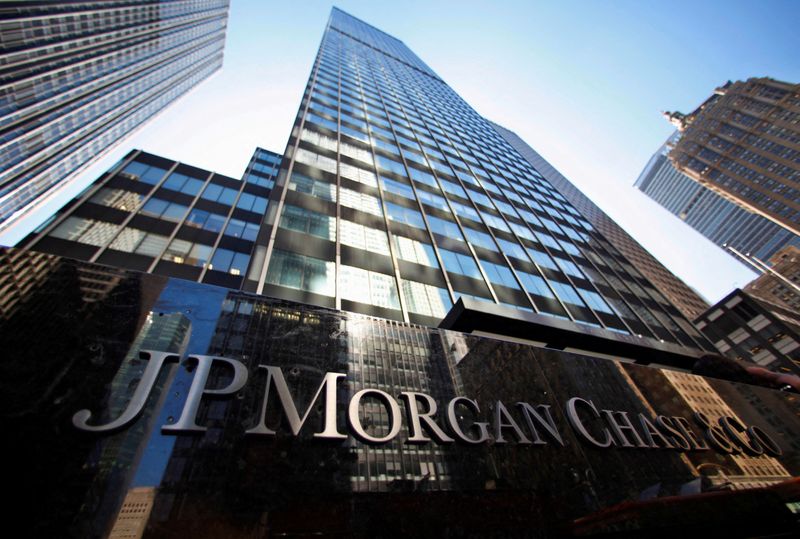By Saqib Iqbal Ahmed
NEW YORK (Reuters) - Options traders are braced for larger-than-usual post-earnings stock price swings for some U.S. banks, despite signs of cooling volatility in broader markets, options data showed.
Big banks, including JPMorgan, Wells Fargo and Citigroup Inc (NYSE:C) are set to report financial results on Friday, with others, including Goldman Sachs and Morgan Stanley, due next week.
The biggest U.S. consumer lenders are set to post higher third-quarter profits, in contrast with investment banks still facing a dealmaking slump, analysts said.
Options data shows traders braced for a larger-than-usual post-earnings move from Wells Fargo in particular. Traders expect shares of the fourth largest U.S. bank to move about 4% in either direction by Friday, compared with a median move of 2.6% over the last eight quarters, according to data from options analytics service Trade Alert.
Wells Fargo, which has been trimming its workforce since the third quarter of 2020, could cut more jobs as it aims to improve efficiency, Chief Financial Officer Mike Santomassimo said in September.
The options-implied earnings move for Goldman Sachs, Morgan Stanley, Bank of America and Citigroup also signal a larger-than-usual post-earnings swing, data from Trade Alert showed.
"The implied volatilities are relatively high in light of these companies' earnings history," Steve Sosnick, chief strategist at Interactive Brokers (NASDAQ:IBKR), said.
"It's worth noting that they show some risk aversion amidst a broad market that seems to be reverting to its complacent ways."

The Cboe Volatility Index - an options-based gauge of investor expectations for how much the S&P 500 is seen swinging over the next 30 days - fell to a three-week low of 15.44 on Thursday after surging as high as 20.88 a week ago.
Expectations for bank stock moves increased as exchange-traded funds tracking U.S. banks have logged significant outflows since the start of October, amid a broad risk-off move in markets and ahead of earnings as investors took money off the table fearing elevated interest rates and stricter regulations in the aftermath of the regional bank crisis.